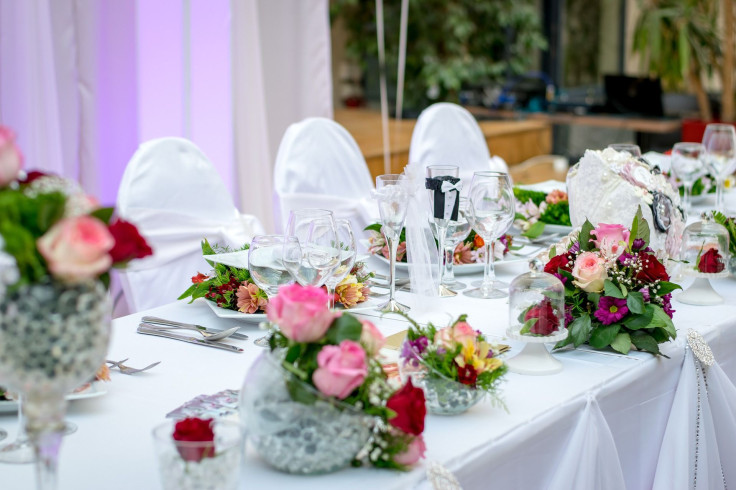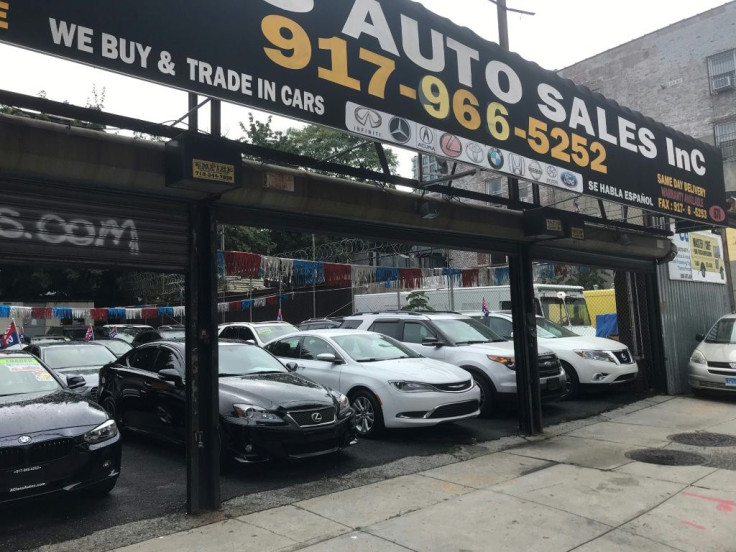Inflation Effects Being Felt In More Industries Besides Food, Housing And Fuel
Americans around the United States have all felt the effects of inflation on their bottom line when it comes to everyday expenses related to their housing costs, grocery bills and fuel in their cars. However, the pinch is also affecting other industries as well, forcing changes to help cope with sky-rocketing costs.
With housing prices up 19.8% over the last 12 months according to Standard & Poor’s/Case-Shiller Housing Price Index, gas prices averaging $4.30 around the U.S. and food prices up an average of 5.5-6.5% according to the U.S. Department of Agriculture, many have been left struggling to figure out how to cover their basic needs. However, those planning weddings are also feeling the crunch of prices—as are those trying to purchase new vehicles.
For the nearly 7 million couples planning to wed in the next three years, with 2.5 million estimated to take place in 2022 alone, the typical annual price increases couples faced on wedding expenses in the past have also sky-rocketed. According to The Wedding Report, the average couple in the United States spent $27,063 on their wedding in 2021, an increase of $2,363 from 2019 and $6,777 from 2020 average costs, though celebrations were significantly smaller that year due to the pandemic.
While a projected average cost for 2022 weddings has not been revealed, it's expected that costs will be much higher because of the increase in costs caterers will spend on food, venues and vendors may spend on labor and what transportation companies may need to charge because of fuel. In addition, with more weddings on the calendar for both 2022 and 2023 because of previously postponed events being rescheduled, the prices are expected to sky-rocket.
“These are the things that people care about the most—the food and the var, the photography services and of course the venue,” Shane McMurray, founder of The Wedding Report, told CNBC.

The amounts spent on weddings also vary dramatically by state in general, without inflation factored in. According to The Knot, the five U.S. states/territories with the highest average price tag for weddings in 2021 were New Jersey ($47,000), Washington, D.C. ($44,000), Rhode Island ($43,000), New York ($42,000) and Connecticut ($38,500). The states with the five lowest averages were Arkansas ($17,200), Kansas ($17,000), Oklahoma ($16,000), Idaho ($16,000) and Wyoming ($15,800).
But weddings aren’t the only place where there are other climbs in price. While The Fed continues upping interest rates in an attempt to temper inflation, specifically in the housing market, other areas are being affected as well, including rates on credit cards, student loans and car loans.
The auto industry has been faced with shortages for more than a year, which has already driven up the prices of both new and used vehicles, and higher interest rates on top of that are also making new cars less attainable for those trying to buy.
According to the U.S. Bureau of Labor Statistics, new car prices are up 12.5% year over year, while used cars are up 35.3% in price. According to CNBC, the average amount paid for a new car is now $45,232, and the average monthly payment is $650 over 70.2 months, with dealer financing rate averages of 4.7%. Used cars aren’t faring much lower, with an average price of more than $30,000, a financing rate of 8% and a monthly average payment of $544 over 70.7 months.
With the increased rates from the Fed, it will likely cause an uptick in monthly payments for those purchasing a vehicle.
“in the past, interest rate hikes didn’t affect the new car market significantly because automakers subsidize many loans,” Jessica Caldwell, executive director of insights for Edmunds told CNBC. “However, this is the biggest rate hike we’ve seen in over 20 years, so there may be a small impact but it will likely only reinforce the new vehicle buyer base of higher-income shoppers.”

© Copyright IBTimes 2024. All rights reserved.





















